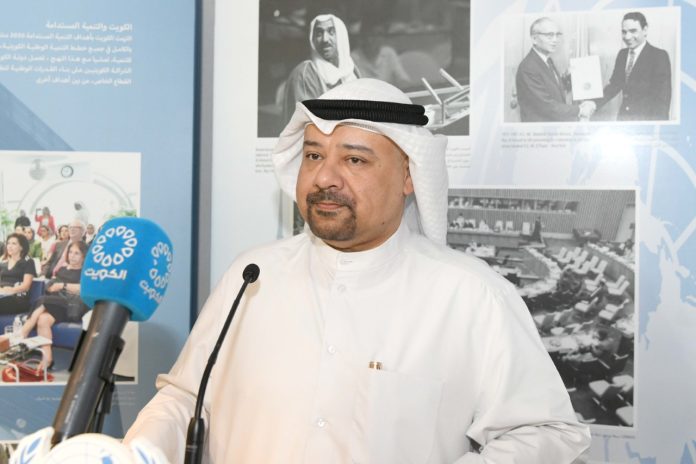The UN house organized a panel discussion on the occasion of International Woman’s Day under the theme “DigitALL: Innovation and technology for gender equality”, and to also celebrate the 1 year anniversary of the Woman’s Economic Development Platform.
This discussion explored the impact of the digital gender gap on widening economic and social inequalities, while highlighting the importance of protecting the rights of women and girls in digital spaces and addressing online and ICT-facilitated gender-based violence. The seminar included participation from the Heads of Human Resource Departments from several Kuwaiti companies and banks that joined WEEP.
The Supreme Council for Planning and Development (SCPD) Secretary General Dr. Khaled Mahdi stated that Kuwait continues to develop and empower women in various fields with the support of the UN Development Programme (UNDP), UN Women and the Department of Women’s Studies at Kuwait University.
Women constitute 60% of the workforce in the government sector and that the percentage of decision-makers and those in leadership positions rose to 21%, after it was 13% in the last study. The study also indicates an increase in the percentage of women in state scholarships and in civil society organizations.
Despite these percentages and the observations that the study highlighted, the percentage of women’s involvement in the private sector in Kuwait is relatively weaker than in the government sector due to several reasons.
Meanwhile, the UNDP Resident Representative Hideko Hadzialic confirmed that despite the acceleration of world economies in employing women in their various sectors, the proportions of some sectors are still relatively small. The theme of this discussion aimed to align with the priority theme for the upcoming 67th Session of the Commission on the Status of Women (CSW-67), “Innovation and technological change, and education in the digital age for achieving gender equality with empowerment of all women and girls”.
Kuwait takes lead in the strategic transformation of education. As it is important to make human capital development more future-oriented and agile.
Science, technology and innovation (STI) can be crucial in meeting the internationally agreed development goals. However, they cannot effectively facilitate equitable and sustainable development unless women’s and men’s aims, concerns, situations and abilities are considered when formulating STI policies. Economic empowerment of women in their workplaces and communities, optimizing women’s perspectives, skills and innovative ideas whether in the markets or workplaces is key to business development and inclusive development.
Susanne Mikhail, UN Women Regional Director for the Arab States stated “If we apply strategic financial levers such as public sector digital programs, research grants and procurement, and private sector investments, we can transform innovation ecosystems. Public and private sectors must fund gender analysis and interventions in all digital policies and programs, research grants and procurement,”
Followed by Dr. Lubna Alkazi, Director Women’s Research & Studies Center in Kuwait University stated that a number of companies in Kuwait have adopted the Women’s Empowerment Principles. From only 7 companies in 2017 to over 45 companies at present. They have not only signed but shown their commitment by implementing policies that have empowered women in their organizations.

















